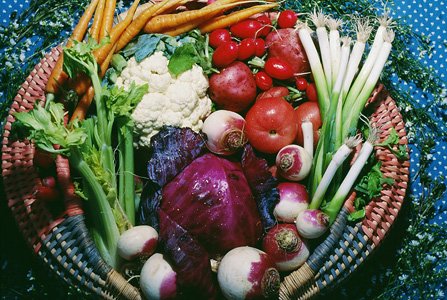Last year I had a breast cancer scare. I felt a lump in my left breast, which I was absolutely sure, was a cyst. My doctor wasn’t so sure though, and insisted that I get a mammogram and an ultrasound. That led to a biopsy.
While I waited several days for the results, I had to consider the very real possibility of facing breast cancer. Fortunately, I was right— it was only a cyst. However, that experience made me more determined than ever to learn about true breast cancer prevention.
October was Breast Cancer Awareness Month, but we can do a lot more than simply get annual mammograms and hope for the best. The best strategies for breast cancer prevention lie in our hands. It turns out that less than three percent of all breast cancer cases can be attributed to family history. A far greater percentage is directly attributed to diet and lifestyle.
So, here are three things that you can do to drastically reduce your risk of breast cancer:
Eat cancer-fighting foods One of the most exciting things I’ve learned is that foods can fight cancer. For example, cruciferous vegetables, which include cabbage, broccoli, kale and cauliflower, contain powerful cancer fighting nutrients. So do mushrooms, onions, beans and green tea. Some of these foods in combination can reduce your breast cancer risk by as much as 90 percent. These are the foods that should dominate our daily diet.
Get cancer-causing foods out of your diet On the other hand, some foods actually contribute to cancer development. Simple carbohydrate foods like white flour and sugar cause spikes in your blood sugar level, which may actually promote the growth of cancer cells. Also, foods that are laden with hormones, such as meat and dairy that come from animals injected with extra hormones to make them grow, are actually cancer causing. These foods should be eaten in only limited quantities.
Get Your Levels Right Do you know your vitamin D level? How about your thyroid levels? Vitamin D deficiency is associated with increased risk of breast cancer. Low thyroid function is also associated with increased risk of breast disease and cancer. These are levels that can be checked by your physician, so that you can take proper supplementation if needed.
Armed with this information, we can stop simply hoping not to become another victim of breast cancer. Instead, we can fight back by giving our bodies the powerful cancer-fighting nutrients they need. And by the way, it’s never too late! Even if you have been diagnosed with breast cancer, these three steps will go a long way in helping you to regain your health.
Teresa Fuller M.D., Ph.D. is double board-certified in pediatrics and integrative holistic medicine, and holds a Ph.D. in physiology. She has been a practicing pediatrician in the Maryland area for the past ten years. Dr. Fuller has become a strong advocate for improving the health status of her patients and the wider pediatric community.
